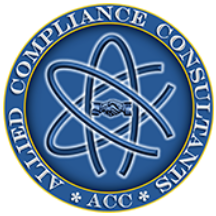British tax office is examining trading companies, motivated by transaction fees and discounted prices offered by fraudsters, continued buying and selling permits even as the doubling of amounts around June 2009 was suspicious, according to Cedric Andrew, a former investigator at HMRC, the British agency. Based on parallel cases in the mobile-phone industry, the inquiry into so-called missing-trader frauds may not be resolved until 2015, according to Jonathan Grant, a director of sustainability and climate change at PricewaterhouseCoopers LLP.
“The carbon market was particularly vulnerable to missing-trader frauds because spot trading and the delivery of the allowances and cash can be very rapid,” Grant, who has advised the European Commission on some of its carbon programs, said June 3rd by e-mail.
HMRC served an £86 million ($133 million) assessment in September related to value-added-tax fraud on a European unit of RBS Sempra Commodities LLP, a venture between Edinburgh-based RBS and Sempra, the San Diego-based company said May 2nd in a filing to the U.S. Securities and Exchange Commission (SRE).
RBS is cooperating with the agency, Linda Harper, a speaker for the bank in London, said May 31st by phone, declining to elaborate.
Surging Volumes
According to the Sempra filing, a letter from HMRC to RBS states that “HMRC believes it has grounds to deny RBS the ability to reduce its VAT liability by VAT paid during 2009 because it knew or should have known that certain suppliers in the trading chain did not remit their own VAT to HMRC.”
CarbonDesk, which bought and sold carbon permits on behalf of clients, is contesting an assessment received from HMRC in January for £95.5 million, its founder Brett Stacey said June 4th by e-mail. Neither RBS nor CarbonDesk has been accused of fraud.
Buying and selling of EU allowances for immediate delivery jumped to 38% of the total market in May 2009, up from 26% in April and 18% in March, Barclays Plc estimated at the time. Permits are traded electronically between accounts held by companies that keep track of ownership.
Crimes in the greenhouse-gas market will take more time to prosecute because regulators need to investigate whether buyers, sellers and brokers improperly took advantage of surging volumes, London-based Grant said.
Several Investigations
HMRC has limited its VAT losses to less than 300 million pounds and is “taking action to recover amounts properly due,” Andrew Bennett, a speaker for the tax office in London, said April 23rd by e-mail.
The claim against RBS Sempra is one of “a number of investigations into VAT tax-refund claims” in the carbon market by HMRC, according to the Sempra filing. Art Larson, a company spokesman in San Diego, said that RBS is handling the case on behalf of the venture.
RBS Sempra is being liquidated after its European power and natural gas business was bought by JPMorgan Chase & Co. in 2010. Patrick Burton, a spokesman for JPMorgan in London, declined to comment when reached June 4.




















